Justice Delayed: How Nepal’s Justice System is Failing Crime Victims
Despite Nepal’s constitution recognizing crime victims’ rights as fundamental, the criminal justice system remains far from victim-friendly. Victims still endure additional suffering, unable to access basic rights like protection, privacy, compensation, and rehabilitation. This is a story of a justice system failing to protect those most in need.
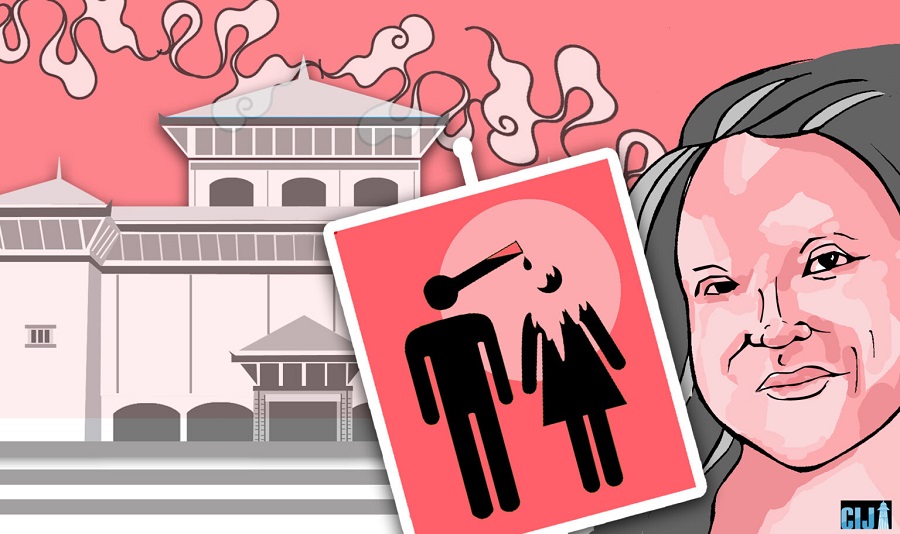
When done with schoolwork for the day, Bindabasini Kansakar would help out at her family’s kitchenware shop in Pipalbot, Hetauda. A student in grade 12, Kansakar often worked at the family business, which was attached to their home. Her cousin, who lived nearby, and his friend, Dilipraj Keshari, often visited the store.
One day, Keshari, who Kansakar called “dai” (brother) as a term of respect, made a romantic proposal to her. Surprised by his unexpected approach, Kansakar did not respond. However, Keshari soon began following her everywhere— be it the shop, college, or her tuition classes—pressuring her to marry him. Trying to escape the situation, she told him, “Talk to my family.” But Keshari never approached her family; instead, he continued to follow her, making her life increasingly miserable.
When the harassment became unbearable, Kansakar eventually confided the matter to her father. She remembers her father sternly rebuking Keshari, warning him from visiting their store without good reason. But after staying away for a few days, Keshari returned on Baisakh 9, 2070 (April 22, 2013), around 11:30 AM. Kansakar, who had just arrived at the shop, asked him, “Why are you here when my father told you not to come?” He held up a small bottle of ‘Dabur Honey’ and claimed he was delivering it. Believing it was sent by her aunt, Kansakar reached out for the bottle. As she recalls vividly, “He opened the bottle and splashed it directly onto my face.”
Immediately, her face began to burn intensely. She screamed in pain, initially thinking it was hot water, coffee, or tea. But as the excruciating pain took over and bystanders gathered, they realized that it was an acid attack.
That day, Kansakar’s life changed forever. She spent many subsequent years in treatment, from community and private hospitals in Kathmandu to Devdas Hospital in Madurai, India, undergoing surgeries, including plastic and cosmetic surgeries for her eyes. Her face was perennially bandaged, she couldn’t lie on her back to sleep and she couldn’t chew any food for a long time. Her family spent over 1.5 crore Rupees, of money borrowed from relatives and loans from banks, initially intended to expand the family’s business, on her treatment.
The perpetrator Keshari was accompanied by Sanjay Kumar Mandal, who had driven him to the store on a motorcycle. After the attack, Mandal had quickly whisked him away in the same vehicle.
While Kansakar was scrambling between hospitals in Nepal and India for treatment, her attackers, Keshari and Mandal, moved freely between the two countries. It wasn’t until six and a half years later, on Kartik 14, 2076 (October 31, 2019), that the police arrested Keshari. A week later, Mandal was arrested as well. On Falgun 15 of the same year (February 26, 2020), District Judge Kamal Raj Bista sentenced Keshari to eight years in prison and fined him 1 lakh Rupees, while Mandal was sentenced to two and a half years in prison and fined 40,000 Rupees. The court also ordered a compensation of Rs. 1 crore, 14 lakhs and 75 thousand for Kansakar’s medical expenses, to be paid by the perpetrators. If they couldn’t pay, the court ruled that the government provide the amount from its Victims’ Relief Fund.
At the time, there were no laws specifically criminalizing acid attacks, so Keshari and Mandal were charged with attempted murder, resulting in relatively light sentences. It wasn’t until Asar 31, 2079 (July 15, 2022), as a result public outcry and advocacy for stricter laws following the attack on Kansakar, that five laws (the Evidence Act, Judicial Administration Act, Civil and Criminal Code, Civil and Criminal Procedures Code, and Criminal Penalties Act) were amended. The changes introduced a maximum sentence of 20 years imprisonment and a fine of up to 10 lakh Rupees for acid attacks. The law now also considers the production, purchase, sale, packaging, transportation, and disposal of hazardous chemicals like acid without proper authorization as punishable offenses.
Kansakar, now a member of the House of Representatives from the Rastriya Swatantra Party, has seen her life change dramatically, transforming from a victim of an acid attack to a lawmaker involved in drafting legislation. After the attack, the constitution incorporated the rights of crime victims into fundamental rights for the first time. New laws were introduced to implement these rights, including the criminalization of acid attacks, and structures like the Victims’ Relief Fund were established.
However, despite these advancements, Kansakar has yet to receive any compensation, highlighting the broader issue of neglect toward crime victims in Nepal’s criminal justice system. Hundreds of other victims of heinous crimes, like Kansakar, remain deprived of state protection and care despite the many policy frameworks in place.
In Kansakar’s case, the perpetrators were Indian nationals, making it impossible to recover compensation from them, leaving the Victims’ Relief Fund responsible for compensating her. Saman Kafle, a branch officer at the fund, acknowledges receiving Kansakar’s application but states that no decision has been made. The application, submitted to the Makwanpur District Court on Asar 6, 2079 (June 21, 2022), was forwarded to the Victims’ Relief Fund. However, with a budget of around Rs. 6 crores, the fund has not been able to make a decision to provide Kansakar the Rs 1.14 crores ordered by the court. The fund referred the case to the Ministry of Law, which in turn sought approval from the Ministry of Finance to present the matter to the Cabinet on Jestha 17, 2081 (May 31, 2024).
As such, Kansakar’s compensation application is now stuck in a bureaucratic loop, bouncing between the district court, the relief fund, the Ministry of Law, and the Ministry of Finance. Kansakar herself continues to shuttle between the offices of the Relief Fund and the Prime Minister. Meanwhile, Mandal has completed his two-and-a-half-year sentence, and Keshari has three years left in his eight-year sentence.
“I even met with the Prime Minister after hearing that a separate decision needed to be made by the Cabinet. I received assurances,” Kansakar says, “but I still haven’t received the compensation.” Her family, unable to pay off the debt incurred during treatment have had properties auctioned off by the bank, while both Kansakar and her father’s bank accounts have been frozen due to delinquency.
Having failed to receive compensation through regular channels, Kansakar raised her issue at the Women and Social Affairs Committee of the House of Representatives, where she is a member, on Jestha 14, 2081 (May 27, 2024). The committee instructed the government to ensure that the compensation ordered by the court, along with any further treatment expenses, be provided within a month. This directive has yet to be implemented.
“If even I, a parliamentarian and someone in a position to raise my voice, am not being heard, how can ordinary citizens expect justice?” Kansakar asks.
Re-Victimized
Many victims who seek justice, despite braving threats and intimidation to visit police stations and public prosecutor’s offices, often end up being further tormented instead. For instance, a woman from Jawalakhel-26 in Lalitpur went to the Metropolitan Police Circle, Chapagaun, on Magh 30, 2075 (February 12, 2019), to file a report. Instead of receiving help, a Deputy Superintendent of Police (DSP) raped her at the police quarters. He also recorded the incident and blackmailed her with threats of leaking the video. The abuse continued for six months.
When she went to file a complaint, the Chapagaun Police Circle refused to accept it against the senior officer. It was only after four days, with the help of a Senior Superintendent of Police (SSP), that the complaint was filed, she says. “Even though the complaint was eventually accepted, the police intentionally weakened the investigation,” says the victim, known only as ‘Jawalakhel-26’. “In the site inspection report, they omitted the police quarters where the incident occurred and only documented the rented room [where the abuse continued]. Instead of taking a statement from the Chapagaun police, where the assault happened, they collected it from the Gimdi police.”
Moreover, when she went to file a complaint with the Cyber Bureau, she claims the police deleted threatening messages she’d received from her phone and even attempted to format the device, erasing crucial evidence. “If the police themselves are uncooperative, where can we turn for justice?” she asks.
DSP Deepakraj Awasthi of the Cyber Bureau acknowledges that such incidents might occur due to the ill intentions of certain individuals within the police force. “If the victim had filed a formal complaint naming the officers involved, we could have taken action,” he adds.
Another victim, identified as ‘Singhadurbar-84,’ expressed frustration that the government lawyer handling her case was not sensitive to her situation. She only discovered that her rapist, Pashupati Mainali, had been released on bail of Rs. 1 lakh by an order from the Patan High Court after receiving threatening phone calls from him. Mainali had initially been remanded into custody for trial by the district court. She questions, “Why don’t government lawyers provide any updates to the victim about the case?”
According to ‘Singhadurbar-84,’ Mainali would call her and issue threats like, “If you don’t change your statement, I’ll kill you and make you disappear,” even while he was in custody at the Central Jail under the district court’s order.
On 26th Jeth 2080 (June 9, 2023), the Supreme Court ruled that Mainali should remain in custody until the final verdict. Later, on 22nd Asoj of the same year, the district court sentenced him to seven years in prison for rape and fined him Rs. 5 lakhs. On 22nd Jeth (June 5, 2024), the Patan High Court upheld the district court’s decision. Throughout this entire process, ‘Singhadurbar-84’ did not receive sufficient information, cooperation, or protection from the government lawyer.
After significant effort, she eventually succeeded in having the government lawyer replaced. Instead of being represented by Bhim Prasad Bhurtel from the Kathmandu District Government Attorney’s Office, she was now represented by Nirmala Marasini. Bhurtel, who is now serving in Ramechhap, maintains that he has never failed to support any victim.
‘Singhadurbar-84’ also criticizes the lack of communication from the government lawyer during court hearings. She says, “Our contact number is in the case file, but we never get notified about the hearings.”
Four years ago, the government introduced the ‘Hello Witness’ program to notify victims and witnesses in advance about court hearings. However, the program has not been effective. Assistant District Attorney Smriti Chauhan from the Kathmandu District Government Attorney’s Office explains that it is unrealistic for government lawyers to regularly call each victim with updates. “Sometimes we receive case files for hearings the day before, or even on the same day, from the court, and we don’t have time to notify the victims,” she says. According to the Crime Victim Protection Act, the court is required to inform the government lawyer at least seven days in advance, and the lawyer is then supposed to notify the victim as soon as possible.
The Constitution, under Article 21 in the fundamental rights section, guarantees “Rights of Crime Victims.” Laws such as the Crime Victim Protection Act, 2075 (2018) and the Victim Relief Fund Regulations, 2077 (2020) have been enacted to institutionalize justice for crime victims. However, experts argue that victims have been unable to fully exercise these rights. Criminologist Dr. Shankarkumar Shrestha, in his book ‘Victimology,’ points out that the investigation process is not centered around the victim. He notes, “Simply labeling a hearing as a ‘closed courtroom’ does not make the management victim-friendly. There must be provisions to ensure the victim’s confidentiality and security from the moment they enter the court until they leave.”
Neither Security, Nor Support
On 9th Chaitra, 2080 (March 22, 2024), after receiving death threats from Mainali through a phone call from Dillibazar Jail, ‘Singhadurbar-84′ went to the Singhadurbar Police Circle to request security. However, her complaint was not registered for five days. The police advised her to go directly to the prison and file the complaint with the jailer, since the perpetrator was already in custody.
Frustrated, she asked, “Have you ever heard of someone seeking security and protection being handed a letter and asked to deliver it themselves?” DSP Chakra Shah of the Singhadurbar Police Circle clarified that matters related to prisoners fall under the responsibility of the jailer.
In sensitive cases like rape, there should be dedicated rooms with video conferencing facilities for victims to give their statements and be heard safely. Yet, even the district court in the federal capital, Kathmandu, lacks a specific room designed for victims.
‘Jawalakhel-26,’ who had become estranged from her family after filing a rape case, shared her frustration over the government’s failure to provide her with safe housing and security. Initially, she felt relief when a non-governmental organization (NGO) Women’s Rehabilitation Center (WOREC), stepped in to offer her protection and housing after her case gained media attention. However, that relief was short-lived.
She alleged that while staying at WOREC’s safe home, her morale was already low, and she was forced to do manual labor. She also claimed that the in-charge and counselors at the safe home further demoralized her by making comments like, “Where do these people come from, always giving us trouble?” Disheartened by the treatment, she decided to leave. The most painful moment, she said, was when WOREC founder Renu Adhikari told her, “There’s no need for you to stay here; cases like yours come to WOREC all the time.”
Founder Adhikari denied that the conditions were as ‘Jawalakhel-26’ described. Adhikari explained, “We give victims responsibilities to boost their confidence. We made her a support staff member at the organization.” She also acknowledged that complaints were made about the head of the safe house referring to the victim as a ‘spoiled girl,’ after which the head was replaced. Adhikari noted that WOREC has been running safe houses for 25 years with branches across the country, and no one else had reported similar experiences.
Regarding the controversial statement “cases like yours come all the time,” Adhikari clarified that her words were taken out of context. “I meant that many victims come here, and we have to accommodate many, so we can’t focus on just one person all the time,” she explained.
After enduring what she described as mental torture at WOREC, ‘Jawalakhel-26’ shared her experience with a few lawyers from the High Government Attorney’s Office in Patan. One of the deputy attorneys, now serving at the Office of the Attorney General, said, “After hearing her story, we considered whether to issue an informal warning or send an official letter. However, since the government does not have a structure to address such situations, nothing was done, and she eventually left to her own.”
Despite Article 10 of the Crime Victim Protection Act, 2075 ensuring victims’ right to secure housing, this provision has not been implemented.
Similarly, ‘Singhadurbar-84,’ who was rejected by both her family and in-laws after her rape, expressed dissatisfaction despite being awarded 5 lakh Rupees in compensation by the court. “I don’t feel justice has been served,” she said, adding, “The day I can reunite with my children and freely return to public life is when I’ll feel justice has been handed down.”
She also criticized the court’s decision for failing to address her reintegration into social and family life. Even after seeking help from the Women’s Commission to meet her children, she received no support.
Criminologist Dr. Aastha Dahal emphasizes, “There is a difference between the court delivering justice and the victim feeling justice has been served. If the judiciary does not center its approach on the victim, it cannot be considered victim-friendly.”
When ‘Singhadurbar-84’ discovered she needed to fight a separate case to meet her children and re-enter society, she was shocked. Lacking both the courage and financial resources to pursue another case, she asks, “Have I received true justice from just the court verdict? Why doesn’t our law address the overall problems of the victim?”
Lawyers argue that the issues victims face are not just structural or procedural but can extend to courtroom hearings, which sometimes become tools for harassment. Advocate R.C. Gautam stated, “During hearings, lawyers insult trafficking victims by using derogatory terms like ‘prostitute,’ and judges seem to allow it without objection.”
In many cases, lawyers pose irrelevant and distressing questions to torment victims mentally, according to Gautam. One such instance occurred during the rape trial against actor Paul Shah, where advocate Radhika Khatri asked the victim, “On 2078/1/14, when the defendant inserted his penis into your vagina, what sensation did you feel? Please describe.”
When questioned about why she asked such a demeaning question, Khatri responded, “No one has the right to view questions asked in a closed court. The media has no authority to discuss such sensitive matters. Don’t you journalists know that?” She then abruptly ended the call.
Paul Shah, initially found guilty of raping a minor and sentenced to prison, was later acquitted by the Pokhara High Court. However, the Office of the Attorney General requested a retrial, and on 22nd Mangsir 2080 (December 7, 2023), the Supreme Court granted permission. The final verdict will now come from the Supreme Court.
No Relief from the Relief Fund
In the past, convicting and imprisoning the perpetrator was seen as the ultimate form of justice. However, in recent decades, the justice system has shifted its focus. Justice now encompasses not only punishing the perpetrator but also ensuring protection, compensation, and relief for the victim. This paradigm shift has laid the foundation for a more victim-centered justice system, and laws favorable to victims have been enacted. In this context, the ‘Victim Relief Fund’ was established in 2077 (2020).
Initially hailed as a milestone in the criminal justice system, the fund has only provided relief to 131 individuals over the past four years, up until the end of the last fiscal year. Branch officer Samana Kafle explains, “Only a limited number of judges order compensation, which is why the number of victims receiving relief is low.” A recent research report from the National Judicial Academy highlights that compensation awards are at the discretion of the court, but in most cases, the amounts ordered are minimal. The report also points out that even the Supreme Court’s compensation orders for victims have not produced satisfactory results.
Over the last four years, the relief fund has disbursed between Rs. 25,000 and Rs. 7 lakh per case. In none of the cases studied by the Academy was interim compensation requested, nor did any court find it necessary to order such compensation. The Supreme Court’s 2079/80 (2022/23) annual report acknowledges the courts’ inability to effectively enforce compensation orders. As a result, the report recommends that prosecutors and courts become more sensitive to these issues.
According to the Office of the Attorney General’s 2079/80 annual report, no interim compensation orders were issued in cases related to caste-based discrimination and untouchability offenses during the fiscal year.
In addition to the initial allocation of Rs. 78 lakhs from the government budget, the Victim Relief Fund is supposed to be maintained by fines paid by offenders and government contributions. However, it has not received further government funding. Officer Kafle noted that the fund currently holds only 6 crore Rupees.
A Ray of Hope
While the overall justice system remains unfavorable for victims, there have been a few notable cases where victims received relief due to the proactiveness and diligence of government attorneys. Two years ago, in a case involving human trafficking and child sexual abuse, the Kathmandu District Court sentenced consultancy owner Manoj Pandey to seven years in prison and awarded Rs. 125,000 in compensation. Deputy Attorney General Amit Upreti, believing the compensation was insufficient, successfully secured an additional Rs. 500,000 for the victim on appeal.
“If we see that a hearing hasn’t been scheduled for three or four months, we personally follow up,” says Deputy Attorney General Muna Paudel from the Special Government Attorney’s Office, Foreign Employment Division. “When government attorneys show even a bit of proactivity, it’s possible to not only assist victims but also influence the outcome of the verdict.”
However, Upreti acknowledges that such proactive practices remain limited and have not yet been institutionalized.
Several Supreme Court rulings have also contributed to a more victim-friendly justice system. Five years ago, a landmark ruling by justices Sapana Pradhan Malla and Hari Prasad Fuyal set a precedent for compensation and justice for rape victims. The court analyzed the mental, physical, social, educational, and economic damage suffered by a 19-year-old girl from Baitadi who had been gang-raped and ordered justice that included her rehabilitation. Additionally, the ruling required that details regarding the accused’s movable and immovable property and income be collected during the investigation and included in the case file through the Office of the Attorney General.
Another Supreme Court ruling last year further strengthened victims’ rights. On Constitution Day, President Ram Chandra Poudel pardoned Regal, also known as Yograj Dhakal, who had been serving a life sentence for the murder of 29-year-old Chetan Manandhar from Nepalgunj. Dhakal returned home with a garland around his neck, but on 22nd Ashwin, Manandhar’s wife, Bharati Sherpa, filed a writ at the Supreme Court challenging the president’s decision. On 16th Kartik, the Supreme Court overturned the president’s decision and ordered Dhakal to return to prison.



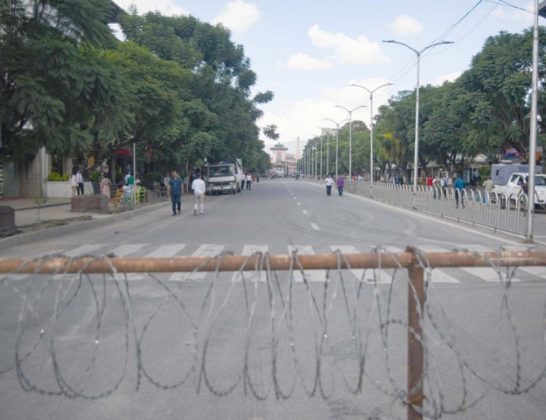
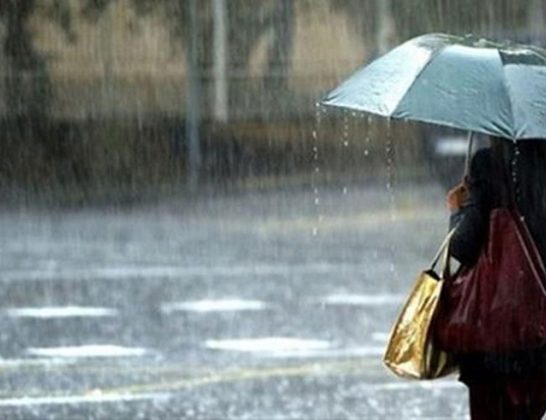
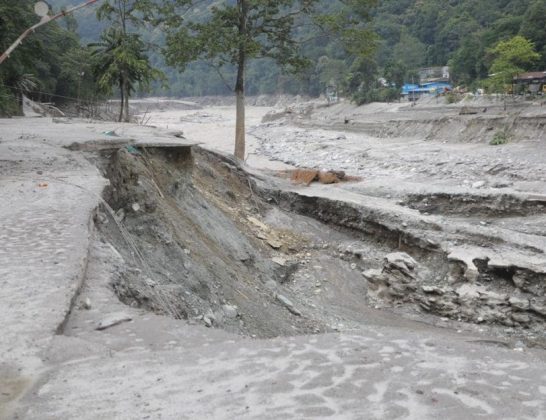
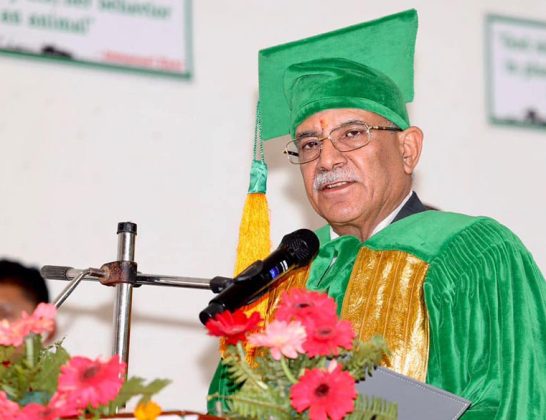


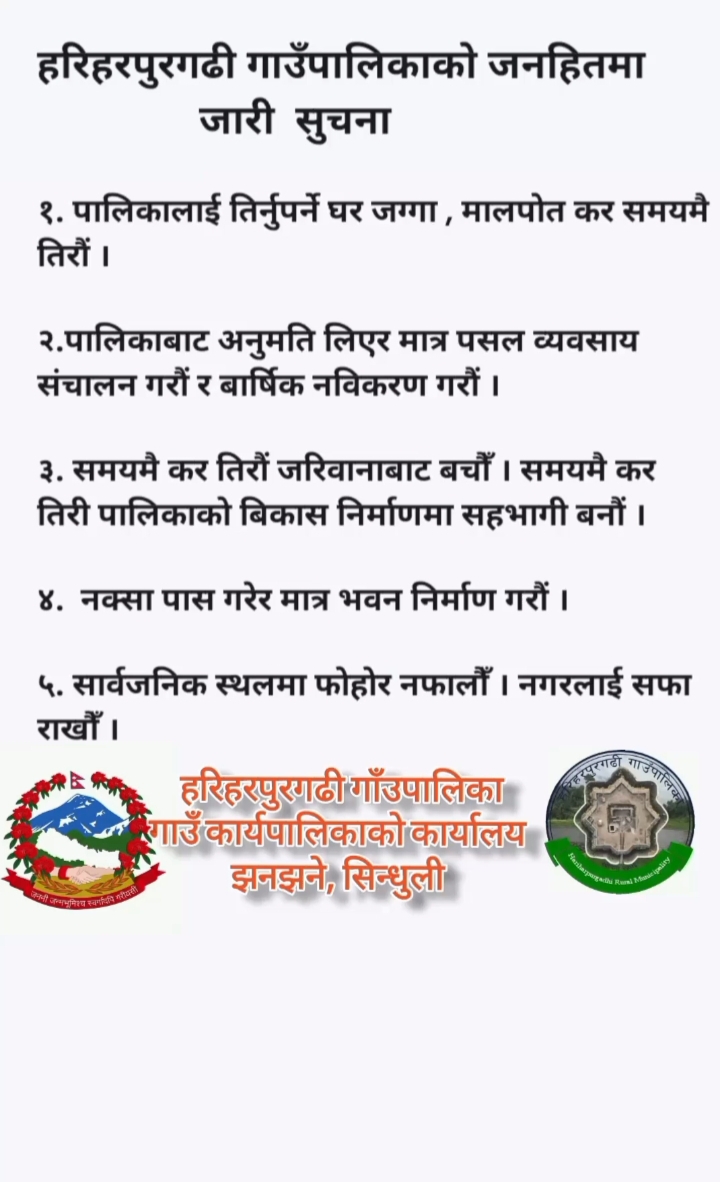
Comments